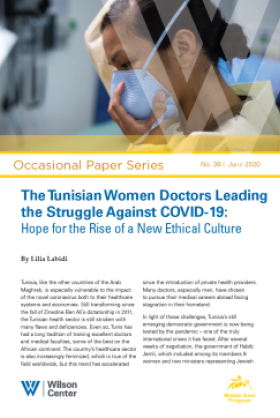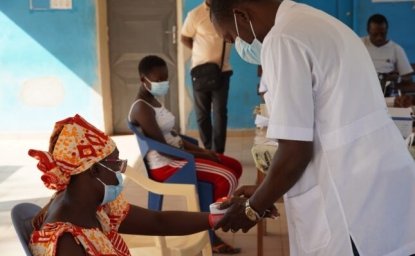The Tunisian Women Doctors Leading the Struggle Against COVID-19: Hope for the Rise of a New Ethical Culture





Trends in healthcare in Tunisia have led to the increased feminization of the field. Male doctors tend to serve the private healthcare system or go abroad. Meanwhile, Tunisia has been undergoing a democratic transition that is still shedding the legacy of government-dominated discourse inherited from the Zinedine Ben Ali regime. Now with the all-encompassing effort to confront the coronavirus pandemic, women in health are playing an indispensable role in supporting the healthcare system and controlling the spread of the virus. Many women occupying prominent roles in medicine, government, and psychology have even gained new national platforms to discuss the scientific and civic implications of the crisis. Starting with a brief history of women in medicine in Tunisia, the author explains how these important roles played by women could signal the emergence of a new scientific and ethical culture, based on discourse and consensus, that will ultimately support the country's democratic aspirations.


The Wilson Center’s Middle East Program serves as a crucial resource for the policymaking community and beyond, providing analyses and research that helps inform US foreign policymaking, stimulates public debate, and expands knowledge about issues in the wider Middle East and North Africa (MENA) region. Read more


The Middle East Women's Initiative (MEWI) promotes the empowerment of women in the region through an open and inclusive dialogue with women leaders from the Middle East and continuous research. Read more



